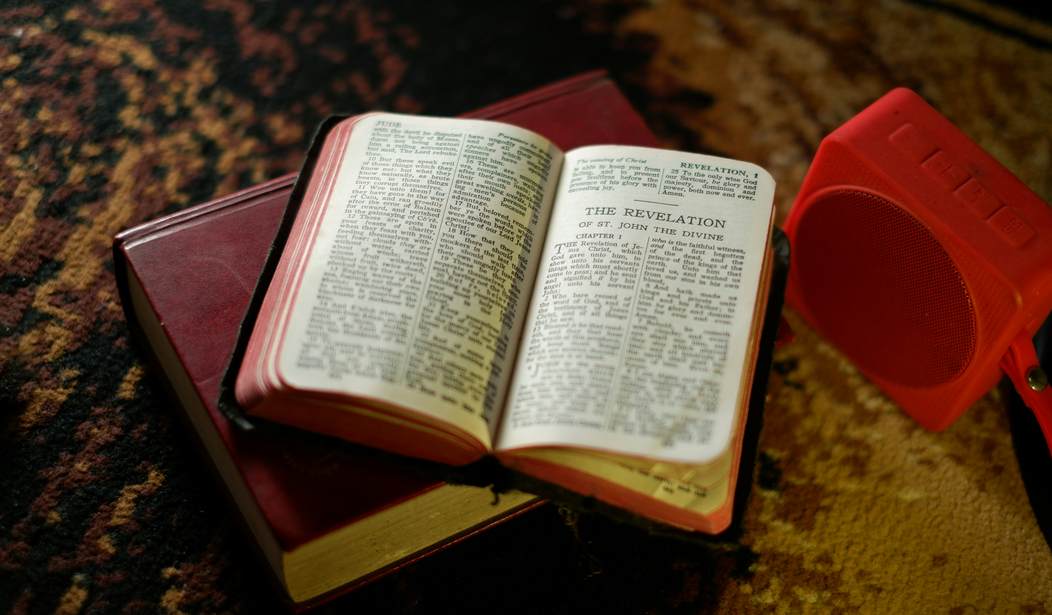Have you heard about the seismic shift in one of the key demographic groups that will shape American culture, politics and economics for decades to come? No, I'm not talking about the wholly unexpected shift of younger voters away to President Donald Trump in the 2024 presidential election.
It is true that 58 percent of Gen Z men (that is, voters age 18 to 27), reported voting for Donald Trump in 2024. No GOP presidential candidate since the election of George H.W. Bush 36 years ago has received a majority of young male voters.
That's a big deal, yes. But it's not the biggest one.
Politics is downstream from culture, and culture is downstream from faith/religion. Far more important is what was beginning to develop among young Americans even before the 2024 presidential election, and which continues today — the American spiritual revival led by Gen Zers and Millennials.
As regular readers of this space know, as much as I love being an investigative editor and reporter and a devoted advocate of greater transparency in government, the great passion of my life is sharing the Gospel of Jesus Christ with one of the least visible but most powerful groups in the nation's capital, the 12,000+ mostly young men and women working as congressional aides to senators, representatives and committees.
These young adults — their average age is 27 — do the daily grind work on Capitol Hill, researching issues, reading and writing proposed legislation, negotiating voting coalitions for floor votes, talking with constituents and lobbyists, crafting communications strategies, and advising their bosses on why they should or should not vote on a particular proposal.
You rarely see them, except when they're sitting behind their bosses during congressional hearings on TV, but these folks wield tremendous influence on the laws all of us must live under. And the data show they are today doing something nobody predicted a decade ago.
This growing revival is not just among college kids; no, according to sources from contrasting political perspectives, this new movement is steadily growing wider and deeper. So much so that earlier this week, Barna reported:
"For the first time in decades, younger adults—Gen Z and Millennials—are now the most regular churchgoers, outpacing older generations, who once formed the backbone of church attendance ...
"Millennials and Gen Z are driving a resurgence in church attendance. As reports emerge of spiritual interest, rising faith activity, signs of revival—including Barna’s analysis of the recent rise in commitments to Jesus—churchgoing frequency is another improving trend among Millennials and Gen Z in the U.S ...
"The headline: Millennials and Gen Z Christians are attending church more frequently than before and much more often than are older generations. The typical Gen Z churchgoer now attends 1.9 weekends per month, while Millennial churchgoers average 1.8 times—a steady upward shift since the lows seen during the pandemic."
(The average church attendance for older adults is 1.6, according to Barna.)
The Barna report confirms what has been a growing recognition in media representing diverse political and ideological perspectives. Consider the following:
- College Campus Revivals: Events such as the 2023 Asbury Revival have inspired similar gatherings across various university campuses, characterized by spontaneous worship, prayer, and expressions of faith. Check out How Gen Z is Leading a Spiritual Awakening. and A Rising Generation – The Growing Spiritual Interest Among Young People.
- Increased Faith Engagement: Surveys show a rising number of Gen Zers are identifying as Christian, with a corresponding drop in those identifying as "not religious." See Are Gen Zers Becoming More Religious? and Five Reasons Gen Zers Are Primed For Revival.
- Bible Interest: There's a growing interest among Gen Z in studying the Bible, seen as a move toward earnest, intentional seeking of God. Give a read to Why Gen Z Could be the Revival Generation, as well as Gen Z Embraces the Bible in Unexpected Global Spiritual Awakening.
- Missionary Fervor: Gen Z shows a heightened desire for spiritual disciplines and missionary zeal, indicating a strong purpose-driven approach to faith. This is examined in Rumblings of Revival Among Gen Z.
- Social Media Faith Journeys: Young believers are sharing personal faith journeys on platforms such as TikTok and other social media, creating a relatable and personable way to connect with others. Take another look at Are Gen Zers Becoming More Religious?
There are multiple reasons why this spiritual revival is spreading, including several that parallel factors behind the electoral upheaval of last year. After nearly two years of officially imposed isolation, for example, high school and college kids were eager to return to face-to-face classes and social events.
And as evidence grew of a host of questionable official claims about the origin of COVID, obvious cover-ups of crucially important medical facts, censorship of dissenting public health voices, and outright lying by elected leaders, public education leaders and federal bureaucrats in the public health field, a growing disillusionment with authority is fostered. Young people want to be able to believe their leaders, too.
But ultimately, the most important factor with many of these young Americans will prove to be the same one that has moved billions of men and women around the world in the past two millennia to recognize Jesus Christ as their living Lord and Savior. They are experiencing in their own lives the incredible truth of II Corinthians 5:17 — "Therefore, if anyone is in Christ, he is a new creation. The old has passed away; behold, the new has come."
And the data also shows young congressional aides working on Capitol Hill reflect the same growth in interest in spiritual matters. Check out the results of a recent survey by CNCT Capitol Pulse of more than 9,000 subscribing congressional aides, who were asked "How important of a role does religion play in your life?"
Those responding "Very Important" included:
- 79 percent of Senate GOP staffers.
- 78 percent of GOP men.
- 72 percent of Republican aides overall.
- 70 percent of GOP House aides.
- 60 percent of GOP women
- 45 percent of Democratic senior staff
- 26 percent of Democratic women
- 20 percent of Democratic aides overall
- 11 percent of Democratic men.
Yes, there is a profound partisan split evident in those responses, but don't miss the most significant point about that divide — nearly half of the senior Democratic staffers say religion is "Very Important" to them.
And I can attest from my own experience with HillFaith that there are young Democratic aides on Capitol Hill who know Jesus Christ as their Lord and Savior and who are passionate about following Him in their daily lives and careers. I fully expect to see more of them, too.
These trends are huge, my friends. God is up to something good in America.
PJ Media always brings you the news that the media ignores or actively suppresses. Become a PJ Media VIP with code FIGHT for 60% off.










Join the conversation as a VIP Member